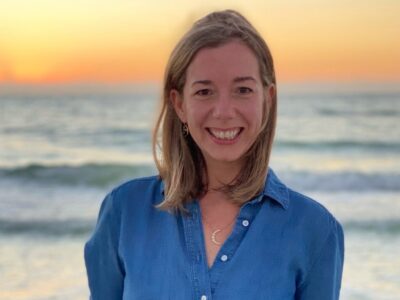
MPA in Environmental Science and Policy alumnus Todd Miner (’11) has always been heavily involved in work at post-conflict and disaster areas, both abroad and in the United States. He puts the management and planning skills he acquired from the program to good use in his current role as director of Friends of Rockaway, an organization working to restore the Rockaway Peninsula in the aftermath of Hurricane Sandy.
1. What is your current job?
I am the director of Friends of Rockaway, a disaster relief and recovery organization started in the immediate aftermath of Hurricane Sandy. We focus specifically on residential infrastructure in Rockaway Peninsula, which is located in the southern most point of Queens in New York City. Friends of Rockaway started out helping individual residents of Rockaway to clean out their homes following the eleven-foot storm surge that came across the community, and have expanded to rebuilding homes for families that are unable to rebuild on their own. In the year since we have been operational, we have helped over 5,000 residents, worked in nearly 700 homes and fully rebuilt houses for 32 families
On a daily basis, I am managing operations of our 35 person staff, including our construction office, client services, volunteer recruitment and our development/marketing team. I am also refining our strategic goals and working with the community to develop a plan to help make this peninsula more resilient to future flooding events. Some days, I focus on finance and development and other days, I will visit homes and check in on the progress of our construction team as well as meet with clients to help them through the recovery process.
We are a community-based organization, and want to remain that way. We have a local hiring program that aims to bring jobs to Rockaway as well as train residents so they can find employment beyond the recovery process.
2. Do your current job responsibilities align with the professional goals that you originally had when you began the Master of Public Administration in Environmental Science and Policy program?
Prior to the ESP program, I was managing programs in post-conflict and disaster areas abroad and in the United States. My goal in coming to SIPA was to learn how to manage organizations. I know the skills that I developed while in the ESP program were instrumental for me being able to assume this position. On a daily basis, I am juggling short, medium and long-term goals while also handling a variety of difficult issues that come up. While I was a member of ESP, I learned how to operate effectively and efficiently when time and resources are limited, and that a good way to think about how my job is structured!
3. What skills has the MPA-ESP program taught you that you think have proven useful to your current position?
Beyond the ability to manage multiple projects, under tight time constraints, I am constantly using statistics and GIS to better understand the needs of the community of Rockaway. During the relief phase of the disaster, I managed a canvassing project to better understand the needs of the community and then connect those residents to services available in the area. We used that data, displayed on large maps and presented to potential donors, to secure funds to start Friends of Rockaway.
A year later, I now spend a lot of time working with my managers to keep them and the rest of our team working toward our common goals. Managing assigned responsibilities, personalities and individual abilities are challenges I experienced in workshop while I was a member of ESP.
4. What skills and tools do you hope to acquire through this job?
This is my first opportunity running a non-profit and I hope that as we expand, that I will be managing more people and larger operations.
5. How has collaborating with your fellow students in class projects benefited you professionally and personally?
The ability to work with people and manage the energy levels of the people that work for me has been instrumental in keeping the organization running smoothly. ESP’s workshop taught me that very quickly. From our workshops, I learned that there is no such thing as a perfectly executed project or a perfect working relationship, rather you keep constantly focused on the long-term strategy and adjust your tactics as the situation changes. It is one of the most important lessons I have taken from ESP.
6. What kinds of environmental initiatives do you hope to start in your new position?
At the moment, Friends of Rockaway is solely focused on providing safe homes for community members, but we are beginning work on a disaster resilience program that will focus on addressing the long-term implications of climate change and sea-level rise here in New York City. I am very excited about the program and know that it is an opportunity to address climate change in a way that is very immediate and personal for real people.
7. How do you intend to utilize your degree from the MPA-ESP program to further your career?
For the moment, I can’t think of a better job, and I hope that I will be here for a long while. I do know that when it is time to move on, that I will be able to use my MPA-ESP degree to ensure that my next job offers me the opportunity to expand my skill-set and take on bigger challenges.
Students in the MPA in Environmental Science and Policy program enroll in a year-long, 54-credit program offered at Columbia University’s School of International and Public Affairs, in partnership with the Earth Institute. Throughout this one-year program, students are immersed in courses that combine Columbia University’s hands-on approach to teaching public policy and administration with pioneering thinking about the environment. During the summer semester, students learn the fundamentals of environmental science, while in the fall and spring semesters, they focus on the policy and economics necessary to becoming successful environmental analysts and managers. Visit our website to learn more about the program.



